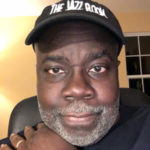The Quest for Freedom – Jazz and the American Civil Rights Movement
“It’s no wonder that so much of the search for identity among American Negroes was championed by Jazz musicians. Long before the modern essayists and scholars wrote of racial identity as a problem for a multiracial world, musicians were returning to their roots to affirm that which was stirring within their souls.”
“Much of the power of our Freedom Movement in the United States has come from this music. It has strengthened us with its sweet rhythms when courage began to fail. It has calmed us with its rich harmonies when spirits were down.” – Martin Luther King, Jr. – On the Importance of Jazz (from his essay in the program of the 1964 Berlin Jazz Festival.
Jazz, with its freedom through improvisation, its tradition of jam sessions, where musicians of various backgrounds and disciplines, would come together, to create amazing art, would be a natural soundtrack for the American Civil Rights Movement, which had its heyday in the 1950’s and 1960’s and that out of a sad necessity, is become necessary and relevant again, as we enter the third decade of the 21st century.
Many of the icons of the Civil Rights movement, enjoyed jazz. Martin Luther King, Jr. did, as indicated by his words, above. Elijah Muhammad, mentor of Malcolm X, considered the great guitarist, Grant Green, to be his favorite musician. And Malcolm X, himself wrote to his brother about his love for the music of Sonny Stitt and Milt Jackson, during his Detroit days.
Because the musicians themselves, being predominantly black, experienced brutal racism, not just in the South but also in the North, where the absurdly racist “cabaret card” laws, in New York, made it virtually impossible for some of jazz’s greatest musicians, to make a living. Many, like Dexter Gordon, Bud Powell, and Kenny Clarke, moved to Europe, to escape the racism, returning stateside, only for occasional recordings. Those who stayed behind often poured their frustrations, into their art, creating, in the process, masterpieces of pain, anger and absurdist comedy.
Sometimes, they took the form of explosive concept albums, such as Max Roach’s We Insist! Freedom Now Suite. Other times, it was a striking track, in the midst of a work, that elevated itself above and beyond everything else on the project, John Coltrane’s “Alabama”; Nina Simone’s “Mississippi Goddam”; Charles Mingus’ “Fables of Faubus” and Louis Armstrong’s moving collaboration with Dave Brubeck and Lambert, Hendricks & Ross “They Say I Look Like God”, all are fine examples of this.
We had hoped, in the 21st century that this music would become anachronistic. However, we are realizing with every passing year, how timely it still is. Jazz musicians are still realizing the importance of speaking to their listener’s pain and frustration and creating timely statements. Harpist Brandee Younger’s 2012 tribute to Trayvon Martin “He Has a Name (Awareness)” and Terence Blanchard’s “Breathless”, which was dedicated to Eric Garner, who brought the phrase “I Can’t Breathe”, into public consciousness (to which it has sadly, recently returned), as he uttered it why being unjustly murdered by NYPD officers; are two more recent examples.
We have included 22 musical examples of the relationship between jazz and the quest for Civil Rights, in this Spotlify playlist. This is not background music but a reminder of how far this country, sadly, still has to go.
God help us, all.
About the Author
 Curtis Davenport
Curtis Davenport
Curtis is a jazz historian, blogger and veteran radio personality. He currently produces the popular blog, CurtJazz.com and the web-based radio station, CurtJazz Radio.
Follow Curtis on his website, Curt’s Jazz Cafe, CurtJazz Radio, Facebook and Twitter.